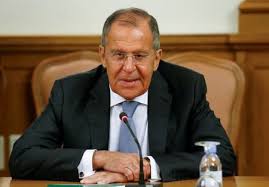Download PDF :


Financial Times (21 June 2018)
It is an extraordinary U-turn. Six years ago, Bulgaria scrapped a multibillion-euro project to build a nuclear power plant with Russia’s Rosatom nuclear monopoly as costs spiralled. Boyko Borisov, Bulgaria’s pugnacious premier, called it “the corruption scheme of the century”. This month, Bulgaria’s parliament approved a proposal from the same Mr Borisov to restart the project. Rosatom, which already supplied two 1,000-megawatt reactors for the site, along with China National Nuclear Corporation, and Framatome, a subsidiary of France’s EDF, are interested. The reversal is causing consternation in Brussels. The project, at Belene, in the north of the country, would get its nuclear fuel from Russia — counter to EU policies of reducing energy reliance on Russia and creating a liberalised European energy market. So what changed? The answer is that an arbitration court in 2016 ordered Bulgaria to pay over €600m compensation to Atomstroyexport, the Rosatom subsidiary that had delivered the reactor equipment. Altogether, Bulgaria has already invested €1.5bn in the venture — hardly small change for a country with annual GDP of about €47bn. Sofia could just write off the investment, try to sell the reactors to a third country (tricky), or have another go at completing the project — though, with estimated completion costs of €10bn-plus, that option seems to make scant sense. Belene was originally designed to replace an ageing, Soviet-era nuclear plant at Kozloduy. But that plant — which supplies 30 per cent of Bulgaria’s electricity — in 2016 signed a contract to extend its lifespan until 2049. That leaves no clear need for Belene’s capacity. Critics say the new plant would crowd out investment in renewables, and shut down the Maritza East complex of three lignite-fuelled power stations in the south-east, costing thousands of mining jobs. Academic studies have suggested the break-even cost of Belene’s electricity would be about twice current wholesale electricity prices in Bulgaria and neighbouring countries. The government has insisted it will not guarantee loans financing the project, nor agree to buy electricity at fixed prices to guarantee a market, in a “power purchase agreement”. But for CNNC — which would have no trouble getting Chinese financing — Belene could provide an important toehold in the European market. Moscow seems keen, too. Critics say Belene would fit the Kremlin playbook of using big infrastructure projects both to provide lucrative construction contracts for its own and favoured foreign businesses, and exert political leverage. A Framatome official has indicated it is interested only in being a contractor. But Bulgaria’s flirting with Beijing and Moscow over such a costly project seems particularly odd when it is also trying to cancel PPAs with two western investors, claiming they are too expensive — though they are far cheaper than Belene’s electricity would be. America’s AES and the US-based and London-listed ContourGlobal operate modern power plants using local fuel at Maritza East that generate one-fifth of Bulgaria’s electricity. Sofia has been fighting the PPAs — signed in 2011 for 15 years — since 2014, when, unusually, Bulgaria reported itself to the European Commission, asking if the agreements were illegal state aid. The companies say cancelling them and shifting to trading at market prices would make their investments uneconomic. It would also send a bad signal, when foreign power investors including Italy’s Enel, Germany’s Eon and CEZ of the Czech Republic have all pulled out of Bulgaria in recent years. Ilian Vassilev, an energy consultant, suggests Mr Borisov is using Belene in a complex chess game with Russia. He says the premier wants to persuade Moscow to extend Gazprom‘s planned Turkish Stream gas pipeline beyond Turkey and on to Bulgaria. It would then link to a planned “Balkan Hub” for gas near Varna on the Bulgarian Black Sea that would be the gateway into south-east Europe. This would, in effect, revive Russia’s South Stream pipeline that was ditched in 2014. Such mega-projects may have an allure for political leaders.
https://www.ft.com/content/0843c7d8-746a-11e8-b6ad-3823e4384287
 LAVROV, UN CHIEF DISCUSS IRAN NUCLEAR DEAL, NORTH KOREA
Asia - Pacific
21.06.2018
LAVROV, UN CHIEF DISCUSS IRAN NUCLEAR DEAL, NORTH KOREA
Asia - Pacific
21.06.2018




























